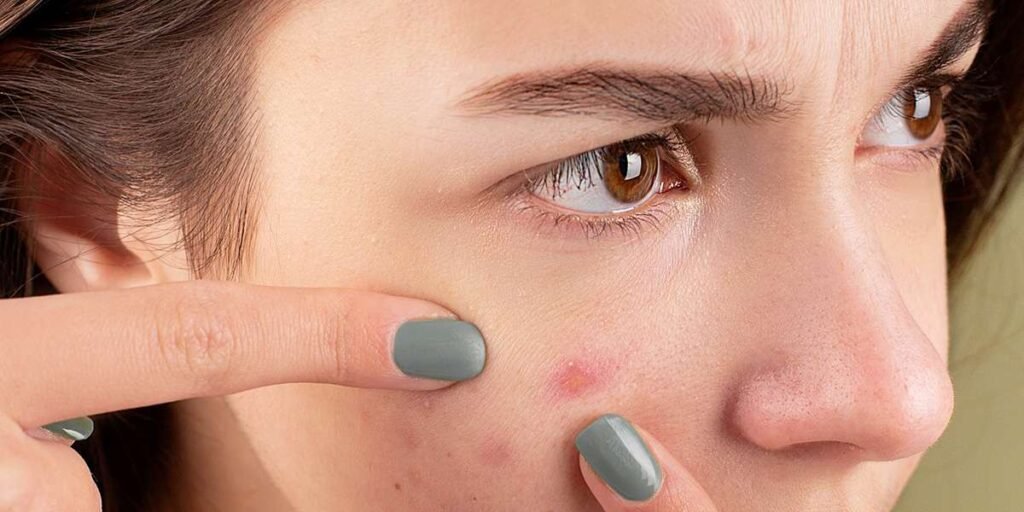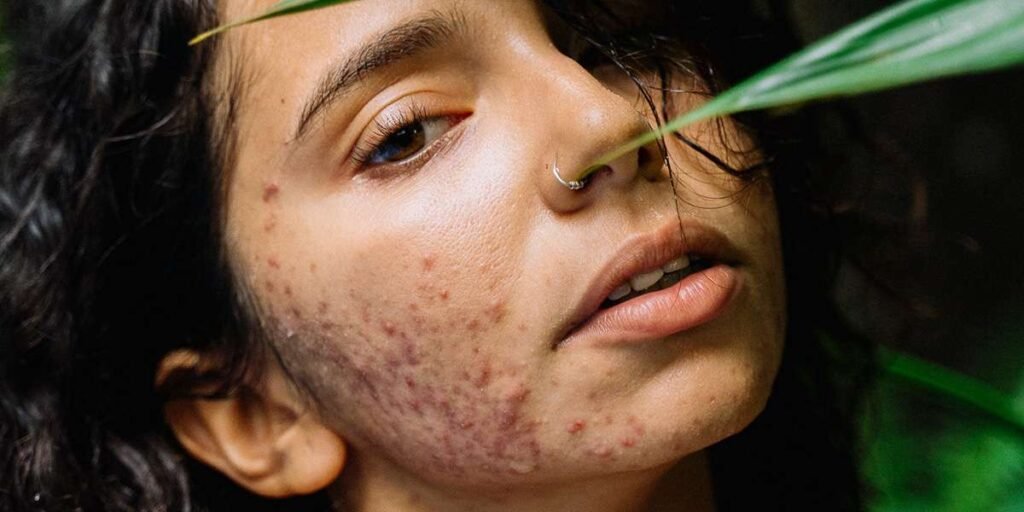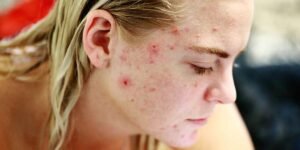
Selenium – The Nutritional Key to Skin Health
A balanced intake of various nutrients is one of the foundations for maintaining health. In addition to varying according to individual specific needs, supplementing specific nutrients is also the key. In terms of skin health maintenance, “selenium”, which has excellent natural antioxidants, plays an important role. What exactly does selenium do? Why does it help prevent sun damage and acne? The following summarizes the three major effects of selenium on skin health, and will take you to understand them one by one.
What is selenium?
Selenium (the symbol of the element is Se) is a kind of mineral and one of the essential nutrients for the human body. It is mainly stored in soil and rocks in nature. In addition to getting selenium from vegetables, fruits, seafood and meat, people can also choose selenium supplements to meet the needs of the human body.
What does selenium do?
Like trace elements such as iron, calcium, magnesium, and potassium, the human body also needs a proper daily intake of selenium to maintain health. Its main functions are as follows:
-
- Antioxidant effect
- Regulation of thyroxine metabolic activity
- Regulate the redox status of vitamin C and other molecules
- Maintain normal immune function
Insufficient intake of selenium can easily lead to the following problems:
-
- Cardiomyopathy
- Increased incidence of cardiovascular disease
- Decrease in immunity
- Slow growth
- Thyroid dysfunction
- Fatigue, depression, joint pain
- Impaired male fertility
Selenium supplements are anti-oxidative, improving skin condition
The skin is the largest organ of the human body, and is also the most vulnerable to external oxidative stress. Environmental pollution, ultraviolet rays and chemicals may cause damage to the skin. Also, it affects skin aging, allergies, inflammation, and even canceration.
Therefore, how to reduce the damage caused by oxidative stress to the skin is an important issue in maintaining skin health.
It is often heard that vitamins C, A, E and coenzyme Q10 have good antioxidant effects, which can help prevent oxidative stress, reduce free radical damage and optimize skin function, but people are relatively unfamiliar with the “selenium” element (Se). Actually, it is another important nutrient, excellent for fighting oxidative stress.
Since selenium is mostly found in meat and seafood, vegetarians or those who cannot eat meat or seafood due to other factors may face insufficient selenium intake. If they are not supplemented with selenium or other nutritional therapies, they will be prone to lack of antioxidant capacity.
When the human body generates oxidative stress, an important antioxidant enzyme in the human body is Glutathione Peroxidases (GPx) which will need to be activated by selenium. By using Glutathione (GSH) for redox, we can reduce the free radical damage of cells by Reactive Oxygen Species, ROS.
The three major effects of selenium on the skin
1. Prevent sunburn and tanning
Ultraviolet rays are the enemy of skin health. They can penetrate the skin and cause damage to skin cells, making the skin prone to aging, sunburn and tanning, and increasing the risk of cancerous cells, making the skin suffer from skin cancer.
Selenium can effectively activate the antioxidant protection mechanism of skin cells, reduce the damage to cells caused by ultraviolet rays, and improve the following three skin problems:
-
- Sunburn: Selenium may reduce the likelihood of sunburn by making the skin less prone to inflammation.
- Tanning: The erythema and pigmentation caused by sunburn come from the damage caused by ultraviolet B (UVB), and selenium can help improve skin protection. In addition to reducing erythema, it can also inhibit the excessive production of melanin, leading to skin tanning.
- Aging: Ultraviolet rays are one of the main causes of aging. Through the anti-oxidation effect, selenium can reduce skin aging, relaxation and wrinkles caused by ultraviolet rays.
2. Reduce acne
Acne are caused by excessive sebum secretion, blockage of hair follicles and sebaceous glands, resulting in skin inflammation. Although it is well known that hormones, diet and external stimuli can all lead to excessive sebum secretion, recent studies have found that oxidative stress may be one of the pathogenic factors leading to skin inflammation. In the past, clinical studies have found that patients with severe acne vulgaris have lower selenium concentration and GPx function in blood samples than healthy people, which means their antioxidant capacity is low.
However, after taking oral selenium for several weeks, the function of GPx in the patient’s blood gradually improved, and the inflammatory lesions on the face were also significantly reduced. It shows that supplementing selenium can strengthen the antioxidant function of acne patients, slow down skin inflammation, and help reduce severity of acne.

3. Reduce skin allergy symptoms
Allergy is an inflammatory reaction that occurs when the immune system regards certain substances as bad outsiders, commonly known as allergens, which further stimulate mast cells and cause allergic problems such as redness, itching, and increased mucus.
Allergy is an inflammatory reaction that occurs when the immune system regards certain substances as bad outsiders, commonly known as allergens, which further stimulate mast cells and cause allergic problems such as redness, itching, and increased mucus.
In addition, selenium is also an important nutrient for maintaining the normal function of the thyroid gland. When the thyroid gland is low, the skin is prone to dryness, itching, and dullness, as well as hair thinning, hair loss, and brittle nails. General blood test items, such as Thyroid-stimulating hormone (TSH) values, actually cannot reflect the actual thyroid function. Many patients have normal TSH values, but the conversion rate of thyroxine is not good.
Selenium is a key cofactor for conversion, and if sufficient selenium can be supplemented in a timely manner, it will help improve the conversion efficiency of thyroxine. In addition, some patients with autoimmune diseases also need to supplement selenium. For example, Hashimoto’s Thyroiditis can damage thyroid cells, making it difficult to synthesize and convert thyroxine smoothly.
Selenium protects the thyroid gland and improves skin health from the inside out. Therefore, when facing the skin condition and seeking improvement needs, it is necessary to replenish nutrients such as selenium that are beneficial to the skin in a timely manner, so as to increase the skin’s protection.
Related Topics
10 Antioxidant Foods Popular in Japan
Reference
Helpful Organization
Supplement to Prevent Acne
Holland & Barrett Selenium + Zinc & Vitamins A, C & E
- Full of Vitamins and Minerals: These coated tablets contains vitamins such as A, B6, C and E along with zinc and selenium minerals
- Antioxidant Supplement: Nutrients such as Vitamins C, E and Selenium play a role in protecting DNA, proteins and lipids from oxidative damage
- For your Skin, Hair & Nails: Zinc supports the normal function of the immune system, maintains normal skin, hair and nails, and contributes to macronutrients metabolism
Holland & Barrett Selenium + Zinc & Vitamins A, C & E
Beauty From Within
How can zinc help improve acne?
Essential, zinc has long been recommended to help with acne prone skin. It plays a key part in the immune system and has qualities such as helping with enzymes, cell division and healing. It is often prescribed during pregnancy too, to help growth and development.
How can selenium help improve acne?
Selenium is the supplement many swear by.
It’s involved in fighting infection, and hormone balance. It works best in conjunction with zinc and vitamin E. When treating acne, it’s main role is as an anti-inflammatory.
How can Vitamin E help improve acne?
Known as the ‘healing’ vitamin, vitamin E is an anti-inflammatory antioxidant. It encourages healing, and is specifically renowned helping with acne scarring. You’ll find vitamin E in nuts, avocado and spinach.
How can Vitamin A help improve acne?
The great thing about vitamin A is that it contains retinol and pro-vitamin A carotenoids which help withgrowth, development and the immune system and most importantly, with skin cell regeneration. A big plus when fighting acne!
How can Vitamin C help improve acne?
Also known as L-ascorbic acid, vitamin C is a regular favourite and for good reason: this antioxidant fights free radical damage and helps with collagen renewal. It’s key to healthier, bouncier looking skin!
Holland & Barrett International is one of the world’s leading health and wellness retailers and the largest in Europe
Best Books For Acne – Just Click to Buy
Selenium is a trace mineral needed in a variety ways to preserve health. Though its deficiency is uncommon a lack of selenium can cause a variety of problems such as exhaustion and muscle weakness. In this fact filled report, find out where selenium is ingested and also how selenium may be used in the the treatment of some common as well as severe health issues.
Acne, rosacea, and sebaceous hyperplasia are very common skin problems, which have a significant medical, cosmetic, and often psychological impact on the daily lives of millions of people. This book covers both the medical and cosmetic aspects of these skin disorders including all clinical considerations, etiology, epidemiology, diagnostic challenges, and the latest theories on
Have you tried and failed with conventional Western medications to cure acne? Are you looking for proven ways to naturally get rid of it from your body? If that’s a yes, we suggest you read further. Dr. Sebi was a worldwide known herbalist, naturalist, and pathologist. He cured many actors and celebrities of the entertainment industry during his life, including Michael Jackson, Lisa’s Left Eye’ Lopes, and John Travolta.
Supplement for Skin Health
Products for Acne – Just Click to Buy
L’Oreal Paris 3.5% Glycolic Acid Cleanser, Revitalift Glycolic Resurfacing Gel Wash
One of the great benefits of glycolic acid is its anti-acne properties. Glycolic acid is keratolytic, meaning it can break apart dead skin cells. And as mentioned, it exfoliates dead skin cells that can clog your pores and trigger breakouts. By removing all the excess oil, dirt, and dead skin cells, you’ll be able to achieve brighter and smoother skin.
Acne busting
Glycolic acid is a great addition to all skincare routines. For those who suffer with outbreaks, it’s particularly effective and can fight against a whole range of skin irritation and acne issues. Particularly for cystic acne sufferers, it help to unclog even the deepest blockages of dead skin cells and sebum. This, when combined with other ingredients in your skincare routine, makes it one of the top options for staving off painful spots. Acne scarring is no match for this super AHA either. Much in the same way that it is touted as an elixir of youth and a dream exfoliant, glycolic acid can also help to lessen the appearance of deep acne scars.











